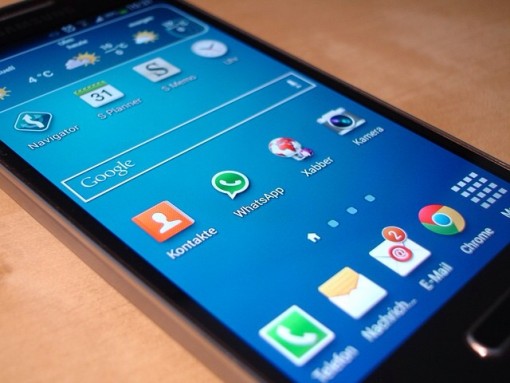 The internet of things on Smartphones is represented by all of the things that makes a smartphone smart and how its users have grown new dependencies on the smart phone features. What is ironic is that we still use the word phone in Smartphones in stead of referring to its name as Smart Devices.
The internet of things on Smartphones is represented by all of the things that makes a smartphone smart and how its users have grown new dependencies on the smart phone features. What is ironic is that we still use the word phone in Smartphones in stead of referring to its name as Smart Devices.
I say this is ironic because the phone is the lease used feature of the Smartphone. Talking to other phone users has become the last line of defense for all forms of communications. Have you ever had someone start a conversation with, “Did you get my Text?”, or “Did you get my email?” So the phone is what we use to reach out when all other options have not gotten you a response and you need the data “NOW”.
Smart devices have forever changed other markets as they provide its users with so many more additional capabilities besides talking. We watch TV, take pictures, stream music, stream video, read and compose email, host online meetings, join online communities, take training classes, network and of course post, tweet, share and download content. Smartphones have almost endless capabilities with the number of mobile applications available today.
Within the Internet of Things on Smartphones the question I pose to the online community is this: Are we more productive and therefore bring more value add into our daily lives with the use of smartphones? Now before you answer yes without hesitation let me quantify the question a little further. Before smartphones it was necessary to know how to read maps in order to navigate through areas that were unfamiliar in order to find your way around.
Today this skill is almost gone. I was talking to a group of kids and I pulled out US Road map and I asked them to plot a course from point A to Point B and offered a cash reward. They spent 15 minutes debating me on why it was not necessary to need this skill. With the youth in mind as you think about this question, I will add that the smartphones indeed provide people with the ability to discover, identify, communicate and share with split second response time.
However, when the power is off temporarily or when the internet is down temporarily the youth just stop in their tracks and wait for these much needed resources to be restored. In the meantime not very much can be achieved during the waiting period. I was talking to this same group of students that I asked to read the map and asked if either of them had ever been in a situation where they were using the navigation app on their phone to get them to a location and then lost power to their phone.
2 of the students responded with “OMG, Yes.” I asked so what happened and they told me that they basically had to spend an hour driving around looking for a “Starbucks” to get a charge. Basically, the mission changed from heading from point A to point B to finding a power source.
Smartphones continue to get smarter therefore so does its users. As we become more dependent on our personal tech to help us maintain our daily lives there may come a time when the internet will be considered equal to essential natural resources like Food, Air and Water. This, in my opinion is bigger than the Internet of things.
Share this:
- Click to share on Facebook (Opens in new window)
- Click to share on Twitter (Opens in new window)
- Click to email a link to a friend (Opens in new window)
- Click to share on LinkedIn (Opens in new window)
- Click to share on Tumblr (Opens in new window)
- Click to share on Pinterest (Opens in new window)
- Click to share on Reddit (Opens in new window)



